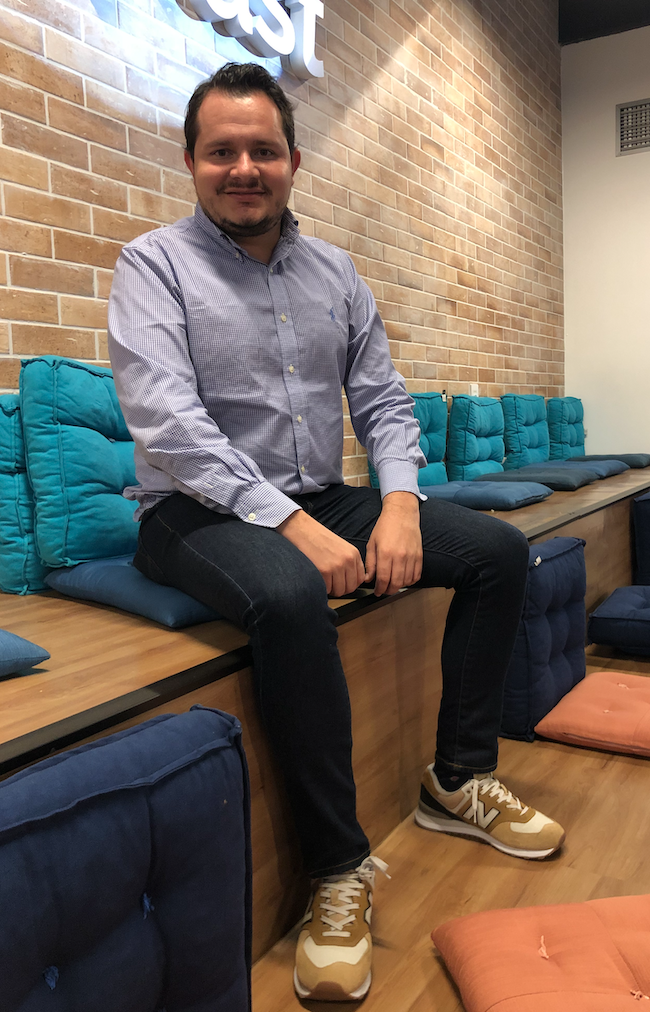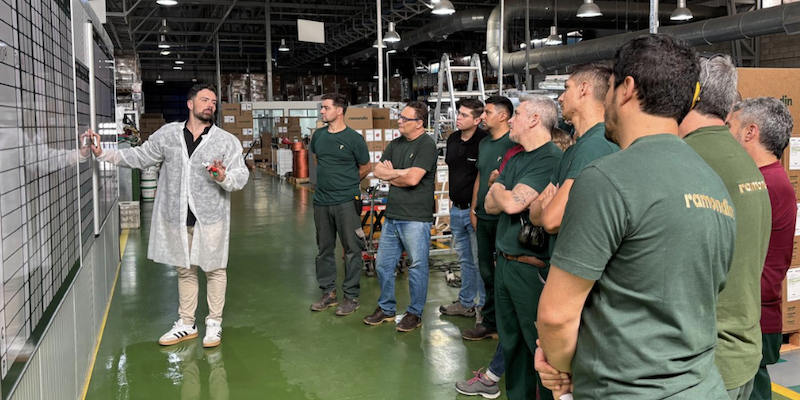
Introducing Colombia to lean management
INTERVIEW – As we look back at the evolution of lean management in our countries, the story of Instituto Lean Colombia will certainly sound more than familiar.
Interviewee: Juan David Ruiz Valencia, President, Instituto Lean Colombia
Planet Lean: To understand the context in which Instituto Lean Colombia operates, can you tell us a little bit about the Colombian economy?
Juan Ruiz: We are an emerging country that is growing consistently, if not as quickly as we would like. We currently have a negative balance of trade – with more imports than exports – but a lot of diversity in our economy. We have a lot of construction, manufacturing, mining and agriculture. In recent years, the service industry has grown considerably by leveraging Colombia’s strategic location between two oceans – despite the lacking infrastructure in our country.
PL: What opportunities do you see for lean in your country? How can it help it to grow and prosper?
JR: There is huge potential for lean in Colombia. I believe it can not only boost our economy, but also transform our society. A recent study by the International Labor Organization revealed that Colombia is one of the least productive countries in the world, which in itself creates huge opportunities for lean here.
Conversations rarely focus on value creation and, even when they do, they tend to refer to value for the business – not the customer. With lean, we have a way of reframing work in Colombia and making better use of our resources.
With globalization and the opening up of our economy, we finally have the opportunity to compete with the world. To do so, however, we need to be on an even footing with other countries. We can’t stay behind: we need to be faster, more agile, more efficient… in a word, leaner.
Lean is an alternative approach to management, one that allows companies to get on a path of continuous learning and innovation. It is people-centric, in the sense that it holds capability development at its core. Too often, in Colombia it is still considered a tool. This has been a common early-stage misconception in every country where lean has appeared, and we are no exception. As an institute, we are working hard to help the business world in Colombia to understand what lean really is and embrace it wholeheartedly.
We have good cases of lean, of course, but most of them are in corporations. The problem is that corporations represent a meagre 5% of companies in Colombia… our opportunity is the remaining 95%!
PL: What sort of obstacles are you encountering as you work to introduce more and more people to lean in Colombia?
JR: When we talk with business leaders, we notice there is a tendency to focus on outside problems rather than look at what each and every one of us can do to improve things. For example, companies will complain about poor infrastructure or the latest government decisions (which are, of course, legitimate concerns), but rarely about what problems they can solve internally to improve their bottom line. Changes in policy and infrastructure will appear in the medium and long term, but lean is here now! We can already do something to improve our performance as companies, and therefore as a country.
There are a lot of discussions on productivity in Colombia at the moment. This is a welcome change, but I also worry that we get stuck in what is essentially a Taylorist discussion: finding efficiencies and reducing costs is great, but we can never forget the customer. We need to understand lean is a holistic system.
Another difficulty we encounter is getting business leaders to understand they need to lead the transformations of their companies. There are many family businesses in Colombia, with deeply ingrained cultures that are difficult to change. We notice a huge divide between the speed at which organizations strategize and adapt to new circumstances and that at which customers are changing their behaviors and habits.
PL: As Instituto Lean Colombia, what is your strategy to help Colombia to embrace lean? Where do you get your inspiration from?
JR: Our aim is to guide people and companies in their lean transformations. We do so in different ways. For instance, as a not-for-profit organization, we have co-learning partnerships with our clients. This is fundamentally different from traditional consulting, where people hire somebody to “do lean” for them. We don’t believe in this approach. Instead, we provide organizations with the tools they need to effect change by themselves.
As part of the Lean Global Network (which is present in more than 30 countries), we strive to spread lean thinking and practice in our country in every way we can. We organize workshops open to the public, where people share their experience their struggles, and events where you can learn from others who have been on a lean journey. We strive to share examples of both success stories and failed attempts at introducing lean.
When we set up the institute, there were no books on lean available in the country. They existed in Spanish, but nobody had decided to bring them to Colombia. Today, we have more 23 titles available to the Colombian lean community.
The lean community in Colombia is starting to grow. Our objective is to identify the people and organizations that want to be part of this community and support them with the information and practical help that they require. Workshops, summits, books, and articles like the ones here on Planet Lean are powerful tools at our disposal to spread the lean word in our country.
PL: Your first lean summit is coming up! Can you tell us about it?
JR: We are delighted to host the first ever Lean Summit in Colombia on November 6-7 in Bogotá. The event will represent a meeting point for our community. Some of the best cases of lean in Colombia will be showcased at the summit. We are also lucky and honored to welcome Jim Womack to the event. He and Dan Jones are the founding fathers of the lean movement. We will also have José Ferro, the founder of Lean Institute Brasil; Christopher Thompson, who is an expert on lean applied to the digital world; and Karyn Ross, who specialized in lean in the service sector. Attendees will learn a lot from the presentations. They will also have a unique opportunity to network with likeminded professionals: yokoten is one of the effective ways to learn from others and spread lean thinking.
THE INTERVIEWEE

Read more


RESEARCH – Human behavior tends to make change even harder to attain than it already is. This brilliant research paper looks at change from a psychological, technical and leadership point of view.


FEATURE – The authors explain why putting value at the heart of customer discussions is key to developing a successful, resilient tech firm.


FEATURE — Ramondin’s Latin American team transformed operations by aligning strategy and daily management through Lean practices, Hoshin Kanri, and A3 problem-solving.


PROFILE – Persevering, letting people inspire you and committing to continuous learning. These are the things you need to do to successfully embrace lean thinking and, it turns out, learn to play the violin.

